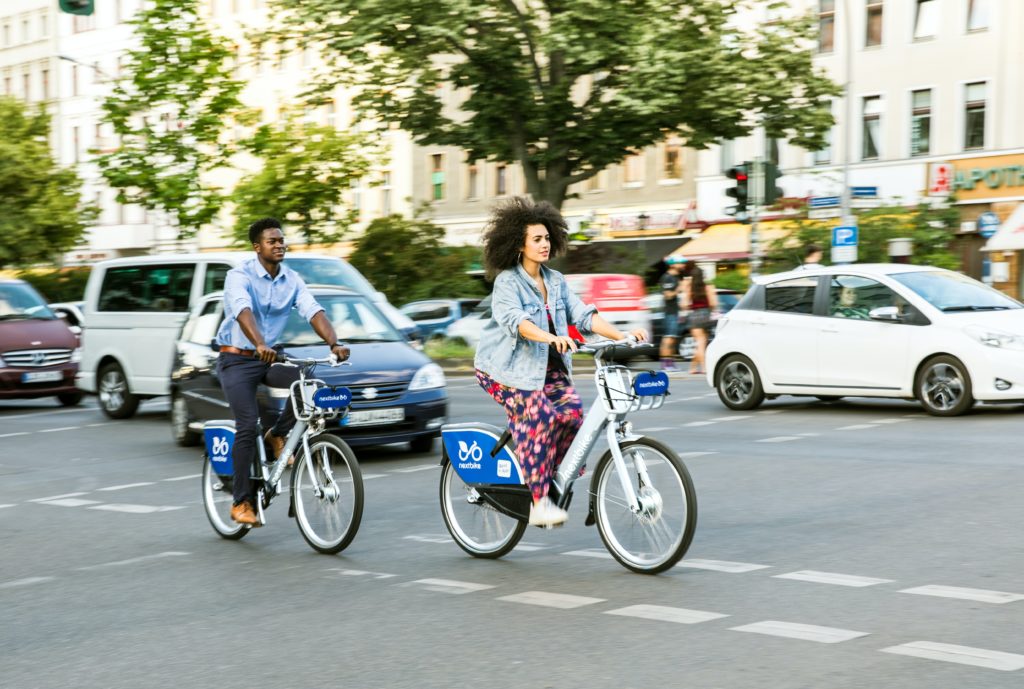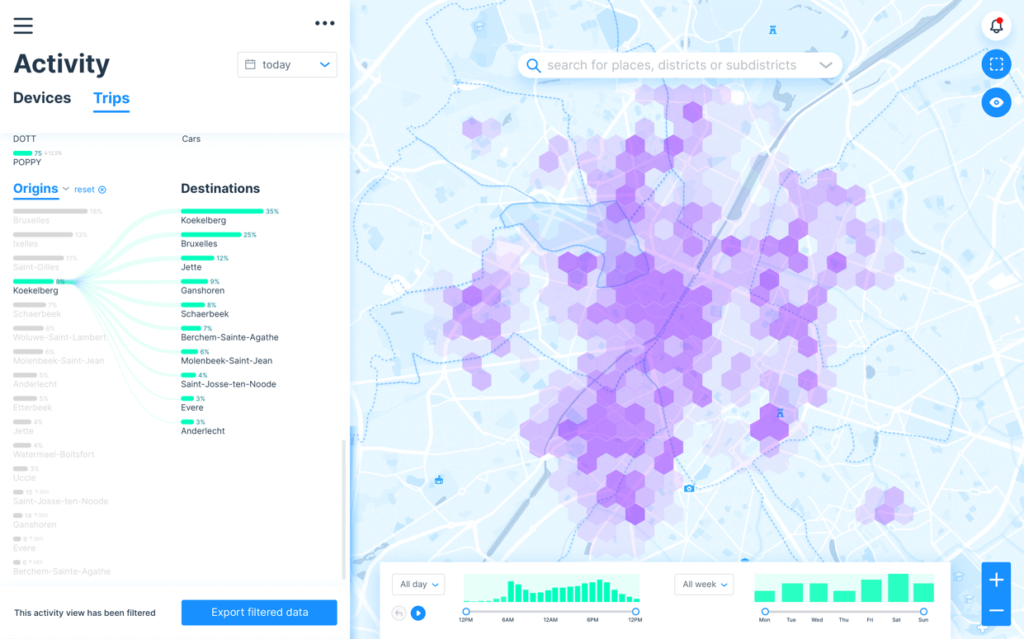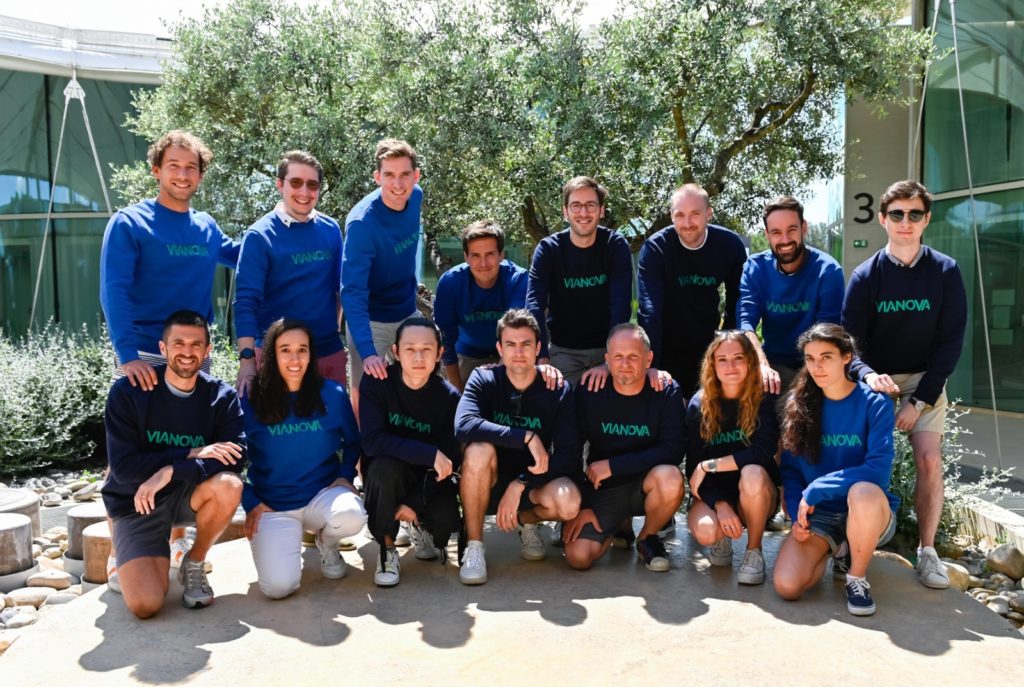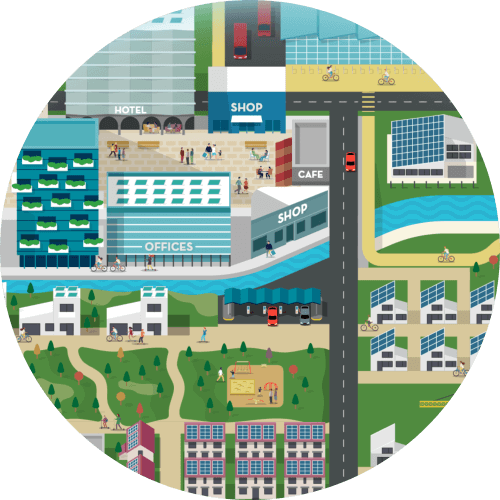Vianova impulsa el cambio a nuevas Soluciones de Movilidad Sostenible

As the world moves towards greener mobility solutions, the number of transportation options at our disposal has never been higher. From e-scooters and shared urban biking to public transportation, car sharing and even intercity flight, passengers can travel in any way they choose. Now, cities are grappling with how to coordinate these systems, making the best use of various services to propel forward climate neutral cities.
French start-up Vianova helps cities bridge the gap. A platform to manage shared mobility, Vianova uses data to help cities and mobility companies better collaborate and communicate, enabling more efficient and sustainable transportation organization.
They recently joined the SME Climate Hub to become part of a community of like-minded companies advocating for a net zero future. We spoke with Vianova about their climate action goals – and how they’re fostering more livable and breathable cities while building the future of green urban mobility. Read their story below.

What inspired your company to take climate action? Why do you think it’s important?
Nowadays, cities are characterized by an increased congestion, and are overwhelmed with the rise of new transportation solutions (e-scooters, delivery vans, etc.). It profoundly affects the way public space is used and distributed, potentially causing a degrading environment, unsafe, unequal and unsustainable for its citizens. These major issues must be dealt with, through the adaptation of cities to new traffic regulations, mobility management and urban planning. We have big convictions on decarbonising our cities, and we believe the place that we gave to cars in our life is just not sustainable. Having lived in Chicago, London, Paris and Berlin, we have experienced the degrading quality of life due to congestion and pollution: we think cities now need to be more in control of their mobility ground and prioritise greener modes.
What role should small businesses play in the race to net zero?
Small businesses and startups have a major role to play in the race to net zero. They may have less financial power than big corporations but, in some cases, they have faster growing and ecology conscious communities of digital natives to rely on and animate. Connected and vocal, these communities and small businesses can make a difference in how fast our society adopts the right changes of behaviour toward achieving climate neutrality.
How is your organization reducing emissions now? How are these actions enabling your company to be on track towards halving emissions by 2030? Please provide details such as percentage reductions, baseline year, and progress year on year if applicable.
Nuestro trabajo apoya soluciones de movilidad de bajas emisiones, como la micromovilidad y la movilidad compartida, para ayudar a eliminar poco a poco los coches de la ecuación en las ciudades. To put it in a more global context, Western Europe emits 1,000 million tons of CO2 equivalent per year from transportation only. We believe our solution can reduce by 10% the energy consumption of transportation over 5 years in the cities we are working with. Vianova aims to decrease modal share for cars in European cities from 40% to 30% over a selected range of cities. We will do so by empowering them in reducing greenhouse gas emissions by helping them manage their policies and urban planning.

What are your plans for 2022 to further reduce your emissions?
As a SaaS company, we believe that we produce very little emissions as of today. However, this is still something we would like to monitor more closely. Other than that, our whole team is either working remotely or cycling to the office, and from 2022 we will provide all our employees with a Sustainable Mobility Pass (Pass Mobilité Durable in France).
What support do you need to take robust climate action? What do you need from policy / government, multinational corporations, or even your customers?
A more ambitious political agenda would be appreciated. We are running out of time and most of the solutions are out there, ready to be tested and/or implemented at scale. Multinational corporations that are not complying with the urgency we are facing, should be heavily fined to finance promising solutions that are under the radar, counter lobbied or under-financed.

What advice do you have for other small businesses within your industry aiming to start their climate journey?
Climate action might be one of the most powerful assets and value propositions for a new business trying to take off in today’s world and economy. New business can have an edge on bigger players — their youth and agility naturally empower them as climate neutral natives if they include this parameter in their DNA early on.
Small businesses like Vianova provide invaluable insights on the journey towards net zero. Interested in sharing your own climate journey for potential inclusion as a business spotlight? Tell us how you’re working towards reducing emissions today via this short form, and we’ll be in touch.

 Volver atrás
Volver atrás







